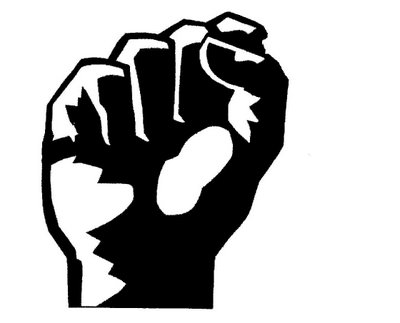by Charles Kambanda
The identity, motive and/or sponsors of Professor Jwani Mwaikusa’s assassins, in Dar es Salaam, Tanzania, may remain “unknown,” meaning “unproven,” for some time, but Professor Mwaikusa’s friends and colleagues know that whoever was responsible deprived the legal fraternity and the entire human race of an irreplaceable, independent and incorruptible mind.
We will remember his extensive knowledge of philosophy and law, his both Cartesian and naturalist legal theory, his deep humanity, his great sense of humor and his courageous, landmark work at the International Criminal Tribunal on Rwanda (ICTR). Professor Mwaikusa contributed much of his valuable time to defending the accused at the ICTR. His concise and precise objections to any inadmissible evidence or testimony was his unique contribution. The quality of his research in preparation for his court appearances will also remain an ICTR landmark.
 In order to defend his clients, Professor Jwani Mwaikusa, a Tanzanian by birth, inquired into Rwanda’s social and political environment prior, during and after the 1994 genocide. His findings led him to a crucial conclusion that “both parties to the Rwandan Civil War within which the 1994 genocide surfaced committed international crimes.” This conclusion, which he referred to as “the bitter truth,” deeply angered Rwandan President Paul Kagame and his top Rwandan Patriotic Front officers and officials, and they have thus, inevitably, become suspect in his death.
In order to defend his clients, Professor Jwani Mwaikusa, a Tanzanian by birth, inquired into Rwanda’s social and political environment prior, during and after the 1994 genocide. His findings led him to a crucial conclusion that “both parties to the Rwandan Civil War within which the 1994 genocide surfaced committed international crimes.” This conclusion, which he referred to as “the bitter truth,” deeply angered Rwandan President Paul Kagame and his top Rwandan Patriotic Front officers and officials, and they have thus, inevitably, become suspect in his death.
 Professor Mwaikusa often argued that by not prosecuting Rwanda Patriotic Front/Army (RPF/A) senior officers who allegedly committed crimes, the ICTR was acting in contravention of its own founding treaty. He insisted that there is overwhelming evidence, collected by private investigator and former ICTR Prosecutor Carla Del Ponte for RPF/A senior officers to be prosecuted by the ICTR before the court closes. He did not mince words about the Kagame regime’s political meddling into the International Court’s affairs and administration of justice in particular, and warned that the ICTR risks leaving a legacy of “victor over vanquished” justice. The liberty with which the Rwandan regime exerted pressure on the ICTR meant, in his view, that international justice was being replaced by international politics and diplomacy.
Professor Mwaikusa often argued that by not prosecuting Rwanda Patriotic Front/Army (RPF/A) senior officers who allegedly committed crimes, the ICTR was acting in contravention of its own founding treaty. He insisted that there is overwhelming evidence, collected by private investigator and former ICTR Prosecutor Carla Del Ponte for RPF/A senior officers to be prosecuted by the ICTR before the court closes. He did not mince words about the Kagame regime’s political meddling into the International Court’s affairs and administration of justice in particular, and warned that the ICTR risks leaving a legacy of “victor over vanquished” justice. The liberty with which the Rwandan regime exerted pressure on the ICTR meant, in his view, that international justice was being replaced by international politics and diplomacy.
When Kagame’s government jailed Professor Peter Erlinder, Professor Jwani Mwaikusa spoke out. He condemned the move and said that it was a “strategy” to deprive the ICTR of independent defense attorneys. Professor Mwaikusa worried that it would be a matter of time before he too would be in a Rwandan jail for the same reason. Now we can only speculate as to whether he had any premonition that his own fate would be even more harsh and final, or that a nephew and a neighbor would both die attempting to come to his defense.
In a landmark case at the ICTR in which the Kigali regime and the prosecutor at the ICTR sought to transfer some of the ICTR’s cases to Rwanda, Professor Jwani Mwaikusa convinced the court that the defendants had no chance of a fair trial in Rwanda. He also successfully argued that the regime in Rwanda lacked the moral authority to try its former political rivals because there is too much evidence that leaders in the Kigali regime are guilty of the same crimes.
Professor Jwani Mwaikusa accused the Kagame regime of twisting the terms of the U.N. resolution that instituted the ICTR. He argued that the U.N. Security Council used the term “Rwandan Genocide” knowing that extremists from both of the two rival ethnic groups committed atrocities against the other, but that the Kagame regime uses the term “Tutsi genocide” to water down the regime’s role in the atrocities.

